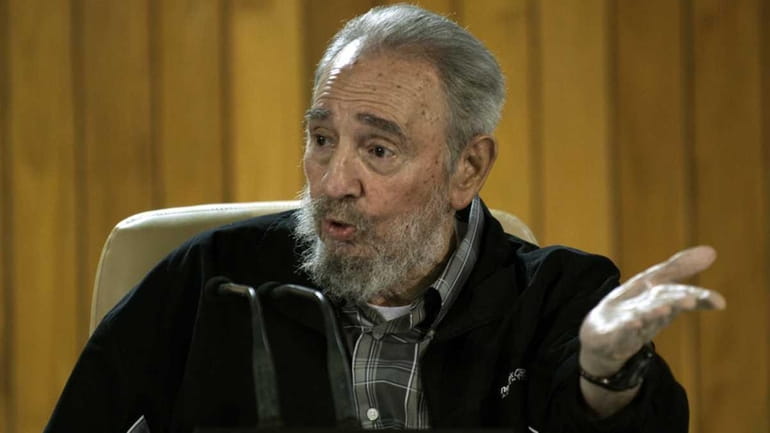World's cop analogy doesn't cut it

Cuba's Fidel Castro in February Credit: AP
These days, every new U.S. military adventure in a foreign land is met with a series of questions as rigidly scripted as the steps of a waltz.
"How long will we be there?" (Forever. If we still have bases in Japan, Germany and Korea, it's a good bet we won't be out of Iraq anytime soon.)
"What do we know about the forces we are supporting?" (Nothing. At best we know what they say they would do if they had all the power, guns and money. That is not the same as knowing what they will do when they have all the power, guns and money.)
"Will our involvement improve the situation?" (Yes, for our friends. For our enemies, not so much. Wars aren't T-ball games. You can't arrange them so everyone wins.)
"Will there be civilian casualties?" (Oh, my, yes.)
But the biggest farce, the hand-wringing question that entirely misses the point, is, "Should the United States be the world's policeman?"
It feels like we just are, like we accepted the badge and gun in 1945 when we divvied up Europe. We've been walking the beat, brandishing our night stick, ever since.
Sometimes it seems like the real question is whether we'll be an honest policeman or the world's corrupt cop.
A good cop doesn't shield his friends when they do wrong. A good cop doesn't bust the small-time crooks while letting the major criminals go free. A good cop doesn't protect the people in upscale neighborhoods while ignoring the travesties in crime-ridden communities. And a good cop doesn't decide whom to punish and whom to let slide based on how it will affect his own future, or his wallet.
Crooked cops do that.
And if the United States is the world's policeman, that's what it's doing, by selective enforcement of its morals via foreign policy and military might.
The United States can easily justify its trade embargo with Cuba. It can explain, ad infinitum, that allowing commerce with and travel to that country would make it easier for the despotic communist government to amass wealth, give the people just enough to keep them quiet, and stay in power.
What our government can't explain is why the same reasoning doesn't apply to another communist country, China.
Cuba is like a small-time hood, incapable of causing us real harm, unable to pay us big bribes. China is more like organized crime, lining our pockets with the money we borrow and filling our shelves with the cheap goods to which we have become addicted.
So the United States busts Cuba and does business with China, accepting its violence against its people, trade practices and currency manipulation.
And we make the same kinds of choices with our military involvement. It's easy to justify the U.S. adventures in Iraq and Libya, where repressed people were endangered by dictators who didn't mind turning a blind eye to terrorism. But we could use that same rationale to overthrow, or at least pester, the governments of Saudi Arabia and Iran.
But we are not the world's policeman. We are just a nation, albeit a very powerful one. We decide which rebellions to support and which to ignore, which countries get to trade with us and which don't, based on a combination of morality and self-interest.
The U.S. government exists to protect and support the U.S. people. If it can do that while freeing or aiding other people, with a reasonable cost and little danger, it should. If it can't, it shouldn't.
But we might want to limit how much we claim to care whether all the peoples of the world breathe free. If we can't be the world's policeman, we shouldn't strut around in the uniform.
